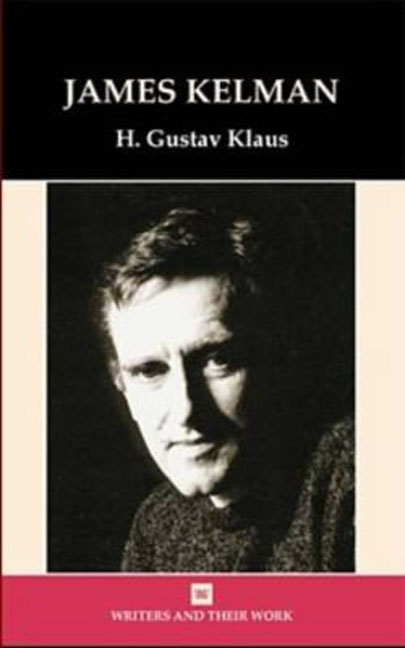
-
The digital format of this book is no longer available to purchase from Cambridge Core. Other formats may be available.
-
Select format
-
- Publisher:
- Liverpool University Press
- Publication date:
- 10 January 2020
- 01 August 2004
- ISBN:
- 9781786942333
- 9780746309766
- Dimensions:
- Weight & Pages:
- Dimensions:
- Weight & Pages:
- Subjects:
- Literature, Literary Texts
- Series:
- Writers and their Work
You may already have access via personal or institutional login- Subjects:
- Literature, Literary Texts
- Series:
- Writers and their Work
Book description
One of the most powerful and provocative writers to have emerged in Britain in recent years, James Kelman has engendered a good deal of controversy over his widely reported, but often misconceived use of 'bad' language words. This introduction to the whole range of his works, from the early short stories through the plays and essays to the Booker Prize winning novel How Late it Was, How Late and the latest experimental fiction, examines the embattled Kelman’s literary politics. H. Gustav Klaus pays close attention to the Scottish culture in which Kelman's writing was nurtured, to the uncompromising treatment of the 'underclass', the intricacies of the narrative voice and the existentialist anguish behind it. A writer of international reputation now, Kelman's principled anti-authoritarianism raises uncomfortable questions about the continuing reality of class, dominant social and literary values and the role of writers in our time.
Contents
Metrics
Full text views
Full text views help Loading metrics...
Loading metrics...
* Views captured on Cambridge Core between #date#. This data will be updated every 24 hours.
Usage data cannot currently be displayed.
Accessibility standard: Unknown
Why this information is here
This section outlines the accessibility features of this content - including support for screen readers, full keyboard navigation and high-contrast display options. This may not be relevant for you.
Accessibility Information
Accessibility compliance for the PDF of this book is currently unknown and may be updated in the future.

